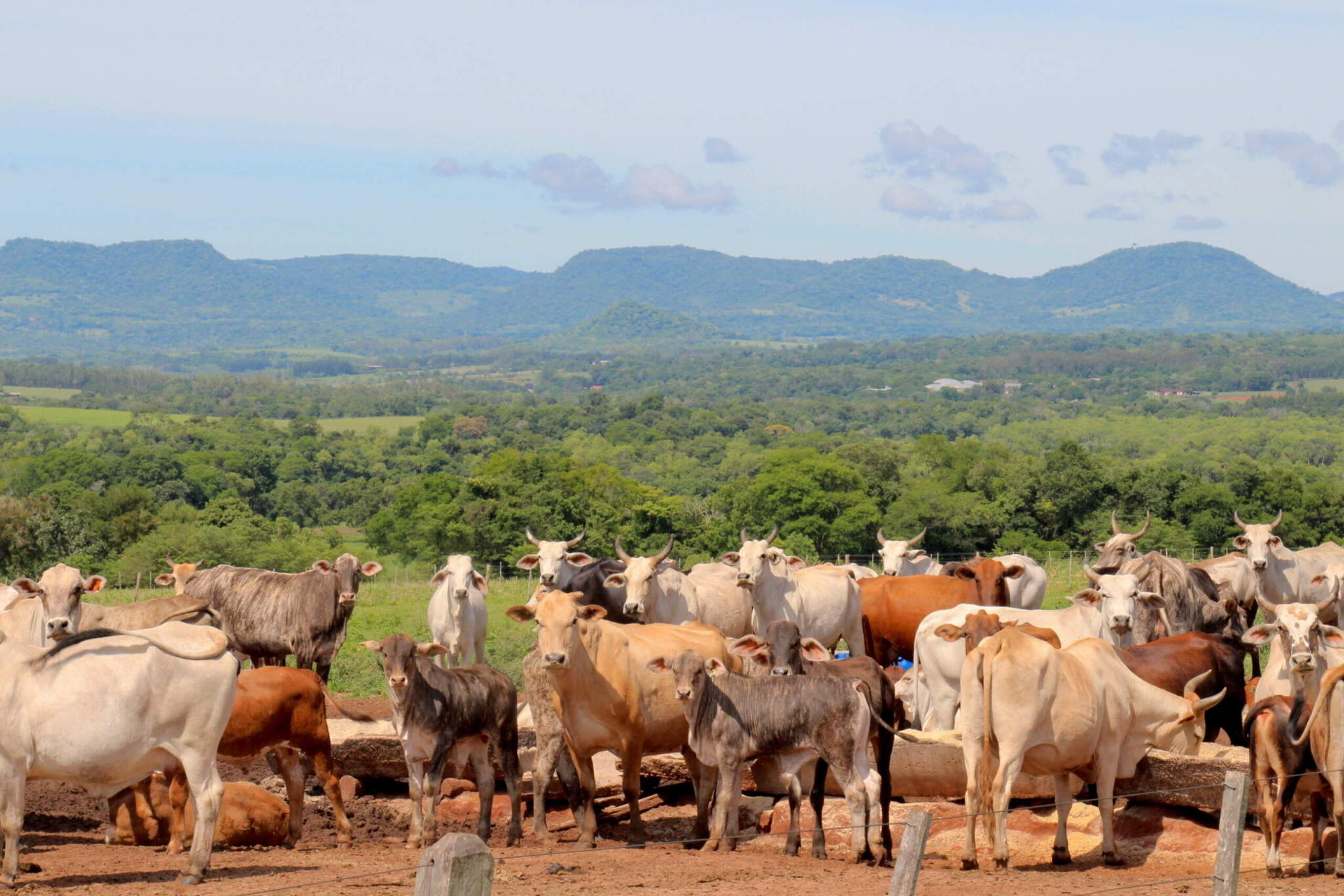For Immediate Release: February 29, 2024
Contact: R-CALF USA CEO Bill Bullard
Phone: 406-252-2516; r-calfusa@r-calfusa.com
Please find below R-CALF USA’s weekly opinion/commentary that discusses the recently introduced Resolution that would nullify the USDA rule that allows the importation of fresh beef from Paraguay. It is in three formats: written, audio and video. Anyone is welcome to use it for broadcasting or reporting.
Commentary by Bill Bullard, CEO, R-CALF USA
It was last March when out of the blue the Department of Agriculture’s Animal and Plant Health Inspection Service (APHIS) issued a proposed rule to allow the importation of fresh beef into the United States from the South American country of Paraguay. The problem with Paraguay is that it is not free of foot-and-mouth disease (FMD), which is a highly contagious foreign animal disease that affects cattle, sheep, hogs, and cloven-footed wildlife.
Now the United States eradicated FMD back in 1929, when an Argentinian cruise ship unloaded the dangerous FMD virus in a port in Los Angeles. Since that time, the U.S. has maintained strict import controls to prevent the reintroduction of FMD into the United States, that is until about the past decade when APHIS began to systematically relax those stringent controls.
And so it is that the United States now imports fresh beef from several countries that are not free of FMD. Included are Namibia, Africa; Uruguay; Argentina; and Brazil. And last year, our illustrious government proposed to include one more – Paraguay.
We objected to APHIS’s proposed Paraguay rule in our formal comments to the agency, arguing that the proposed rule constitutes an unnecessary and avoidable risk of introducing FMD into the United States, which would adversely affect America’s cattle producers and consumers.
But there’s something very different about the proposed Paraguay rule. You see, it was rushed, it was a last-minute decision made by APHIS, and it was placed on a fast track for APHIS’s approval regardless of what ours or anyone else’s formal comments said about the rule.
And here’s evidence that the Paraguay rule was a last-minute rush job by APHIS.
APHIS is obligated to conduct risk analyses that include on-site visits before proposing rules to allow high-risk beef into the United States. And for Paraguay, APHIS relied on a nearly decade-old site visit and a 5-year-old risk analysis to base its decision. Now using such outdated information is unprecedented when it comes to APHIS’s efforts to allow beef from FMD-affected countries.
When APHIS proposed its 2013 rule to allow fresh beef from Brazil, the agency conducted five on-site visits and the last one was in 2013, the same year it made its proposal.
When APHIS proposed its 2014 rule to allow fresh beef from Argentina, it likewise conducted five on-site visits and the last one was in 2013, just a year before the proposal was made.
When APHIS proposed its 2015 rule to allow fresh beef from Namibia, Africa, it conducted three on-site visits and the last one was also in 2013, two years before the proposal was made.
Now according to APHIS, on-site visits are important to verify and compliment the information and materials that the country seeking approval had previously provided the agency.
However, for the agency to rely upon a 9-year-old site visit and 5-year-old risk analysis to conclude that importing fresh beef from Paraguay would be safe in 2024 is an act of negligence. And, yet that’s what APHIS did.
It seems this is a political rule supported by the White House to achieve some geopolitical goal as it clearly bypassed APHIS’s scientific methodology for timely risk evaluations.
Fortunately, something is being done about this. Sens. Jon Tester (D-MT) and Mike Rounds (R-SD) have introduced a bipartisan resolution under the Congressional Review Act that would nullify APHIS’s irresponsible rule to allow fresh beef from Paraguay.
Now this isn’t normal legislation. The senators are making use of a mechanism that allows Congress to overturn irresponsible rules adopted by federal agencies, as is the case here.
This Congressional Review Act resolution, when passed, will ensure that APHIS’s Paraguay rule shall have no force or effect, meaning Paraguayan beef will remain banned from importation into the United States.
Unlike normal legislation, this Resolution is on a specific schedule: It must remain in the committee of jurisdiction, in this case, the Senate Agriculture Committee for 20 calendar days. After 20 days, it can be discharged from the committee under a petition signed by at least 30 U.S. Senators. Once discharged from the committee, the resolution goes to the Senate floor where it must be voted on within 40 days.
We need your help to protect America’s ranchers and consumers from this high-risk beef from Paraguay and here’s what you can do:
Call your two U.S. Senators at (202) 224-3121 and urge them to sign the discharge petition for the joint Tester/Rounds resolution that will overturn APHIS’s final rule that allows the importation of fresh beef from Paraguay.
Tell your Senators they can call either Senator Tester’s office or Senator Rounds’ office to be included on the discharge petition.
Once the joint resolution hits the floor of the Senate, it requires only a simple majority to pass.
We hope you’ll help us make this happen!
###
R-CALF USA’s weekly opinion/commentary educates and informs both consumers and producers about timely issues important to the U.S. cattle and sheep industries and rural America.
Ranchers Cattlemen Action Legal Fund United Stockgrowers of America (R-CALF USA) is the largest producer-only trade association in the United States. It is a national, nonprofit organization dedicated to ensuring the continued profitability and viability of the U.S. cattle and sheep industries. For more information, visit www.r-calfusa.com or call (406) 252-2516.






